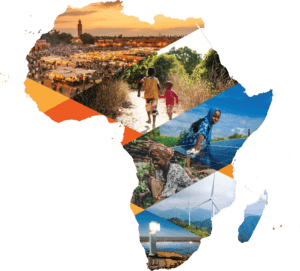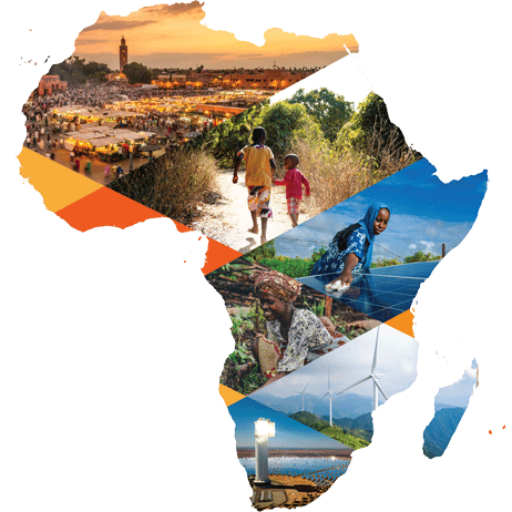JUST TRANSITION
A CLIMATE, ENERGY AND DEVELOPMENT VISION FOR AFRICA
New Report on Africa's future!
A report by the Independent Expert Group on Just Transition and Development
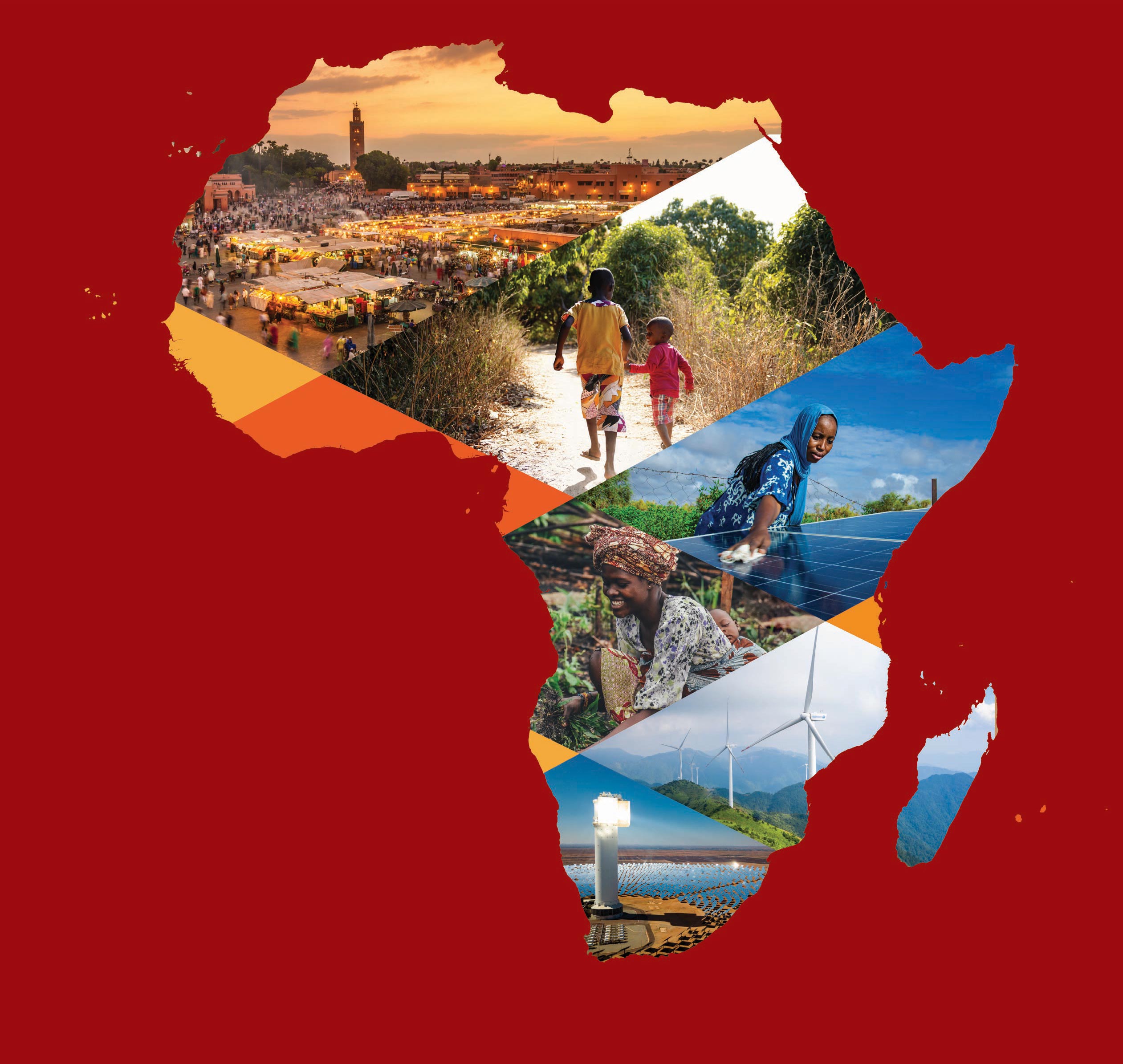
The world is undergoing major changes
In the midst of climate crisis, financial turmoil, pandemics and wars, the world’s economic and geopolitical map is reshaping with risks, uncertainties, and opportunities for Africa. Africa cannot remain passive during this process of structural shifts in the global economy.
This report by independent experts invites all relevant stakeholders – African leaders, government officials and negotiators, civil society, academics, private entities, media, and international partners – to re-envisage a framework for African resilience and prosperity that can simultaneously tackle climate, energy, and development challenges on the continent.
Join us for this Side Event at COP28
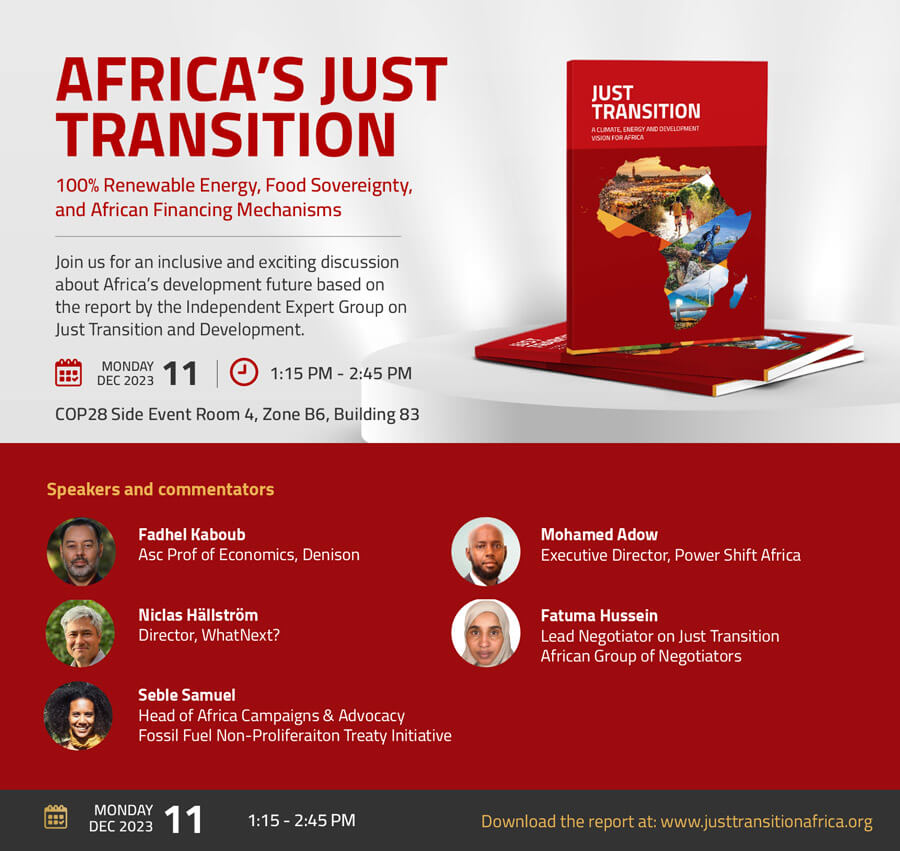
Watch the launch webinar
The Report was presented and discussed at a webinar on 29 May 2023 by several co-authors and discussants, moderated by Tasneem Essop, CAN-International. Versions available in English as well as French and Portuguese translations.
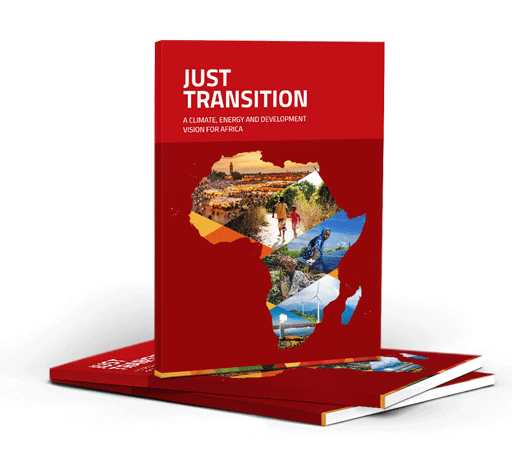
KEY MESSAGES
Africa faces numerous intertwined challenges across climate, energy and development
Africa can choose to formulate another development vision that builds on the rich tradition of African collective, endogenous cultures, breaks dependencies and indebtedness, and fosters enhanced self-reliance
African countries can succeed with their Just transition if they unite and re-embrace a truly pan-African vision
Energy and food sovereignty reduce dependence on foreign imports, cater to genuine, basic needs, and build productive capacity
African societies can set out a new model of value-added industrialisation – with renewable energy technology production to meet domestic needs at the core
People-centred, smart, renewable energy systems can foster more democratic societies, power thriving local economic development, and lay the ground for social services and social protection for all
Africa can go from food importer to food sovereignty providing healthy and environmentally friendly food for all while cutting external dependency
Africa has agency and can invest considerable resources in agroecology, renweable energy, and social protection through their own means and currencies
Remaining investment needs must be made possible through international support and reparations, in accordance with principles of equity and fair shares
A just transition requires both rapid and equitable phase out of fossil fuels as well as a renewable energy revolution that does not cause harm to communities or ecosystems
Africa can inspire questioning of the mainstream development paradigm also on other continents. The set of intertwined, existential crises all societies face calls for a deep reset of the very meaning of ‘development’ and progress, everywhere
There are no ‘developed’ countries — all societies need to embark on a quest to define new, genuine people-centred and sustainable development
“I believe by becoming more assertive and pursuing a climate and development agenda through unified approaches of the kind outlined in this report, Africa will be able to mitigate the climate emergency and propel itself to prosperity.”
Summary of the report
Addressing intertwined challenges
With over a billion people and 55 countries, Africa is home to diverse economies, resources, ecosystems and cultures. Yet decades after independence African countries continue to face famine, energy poverty, regional conflict, patriarchal oppression, economic insecurity, indebtedness and a host of other impediments.
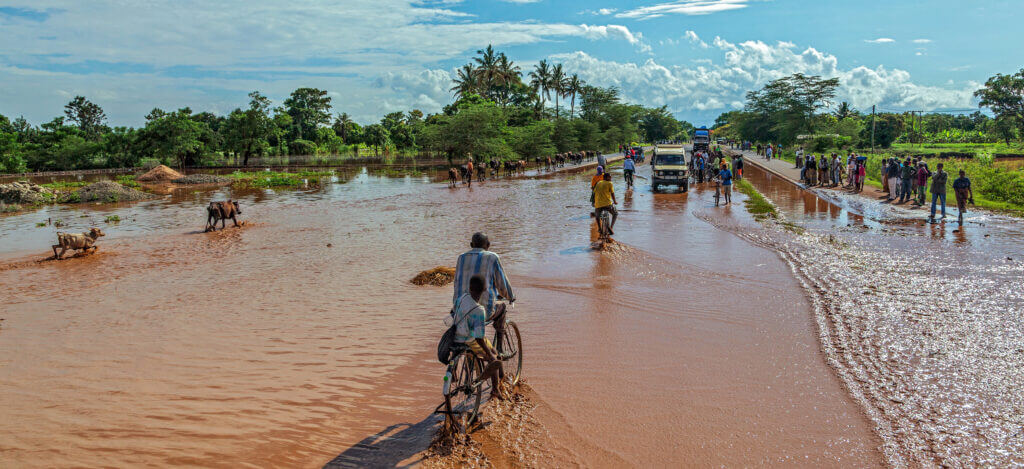
These and other structural development crises are increasingly compounded by climate change. Underpinning both are challenges relating to energy. Africa must scale up energy production and access, while leapfrogging outmoded dirty-energy systems to modern, affordable, renewable energy systems.
Addressing structural deficiencies
African economies suffer at least three structural deficiencies that constrain development potential:
-
- a lack of food sovereignty;
- a lack of energy sovereignty; and
- low-value-added content of exports relative to imports.
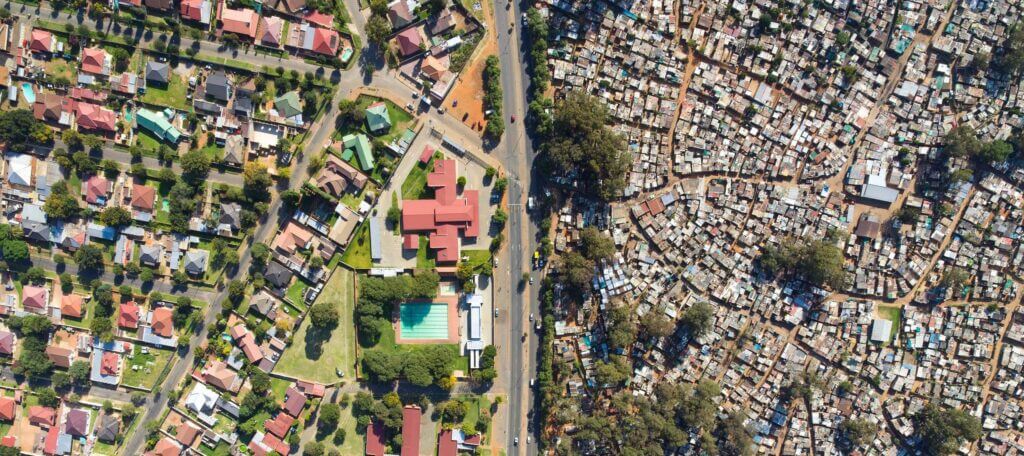
These deficiencies in turn contribute to structural trade deficits, weakened African currencies and pressure to issue debt denominated in foreign currencies, resulting in more indebtedness.
Faced with depreciating currencies and rising import prices, African governments typically resort to subsidising necessities and artificially maintaining exchange rates by accumulating more debt. The vicious cycle deepens.
Rooting our vision in history
Africa’s structural crises are rooted in its history. Colonialism moulded Africa’s economies and societies to meet the labour and material needs of Western industrialisation and development.
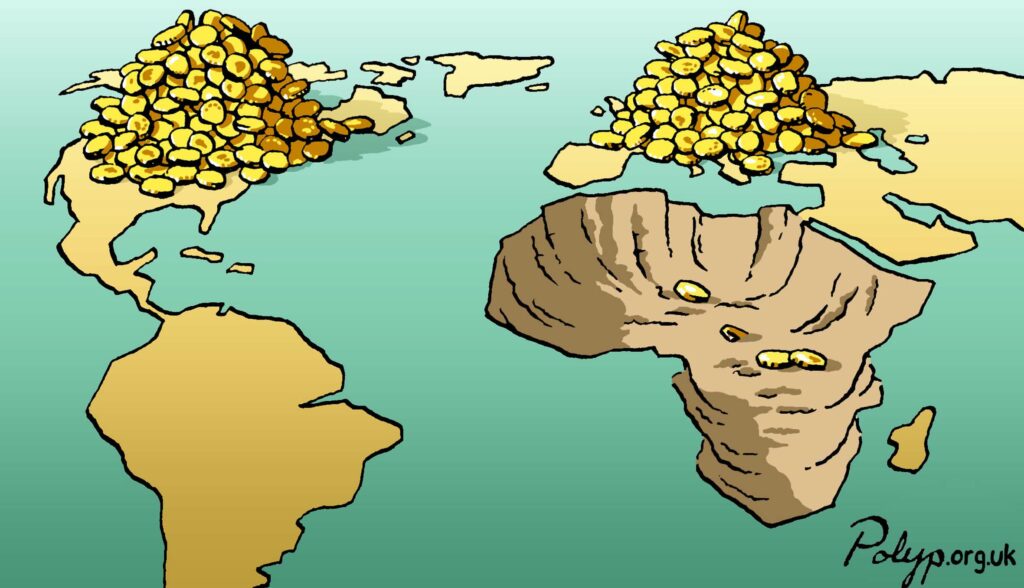
Post-colonial efforts to correct these imbalances, increase independence and nurture infant industries were curbed by energy crises, indebtedness and structural adjustment policies.
Today African countries continue to depend on exporting primary products, resulting in economies that are fragile, vulnerable to shocks, and highly dependent on external factors.
More resilient food, energy and industrial systems
Access by every citizen to nutritious, abundant, affordable and culturally appropriate food is a central objective of development. Africans can achieve food sovereignty by shifting away from export-oriented, cash-crop, industrial agriculture that has left Africa hungry, towards community-based agro-ecological systems that provide nutritious food, sustained yields, secure livelihoods, and climate resilience.
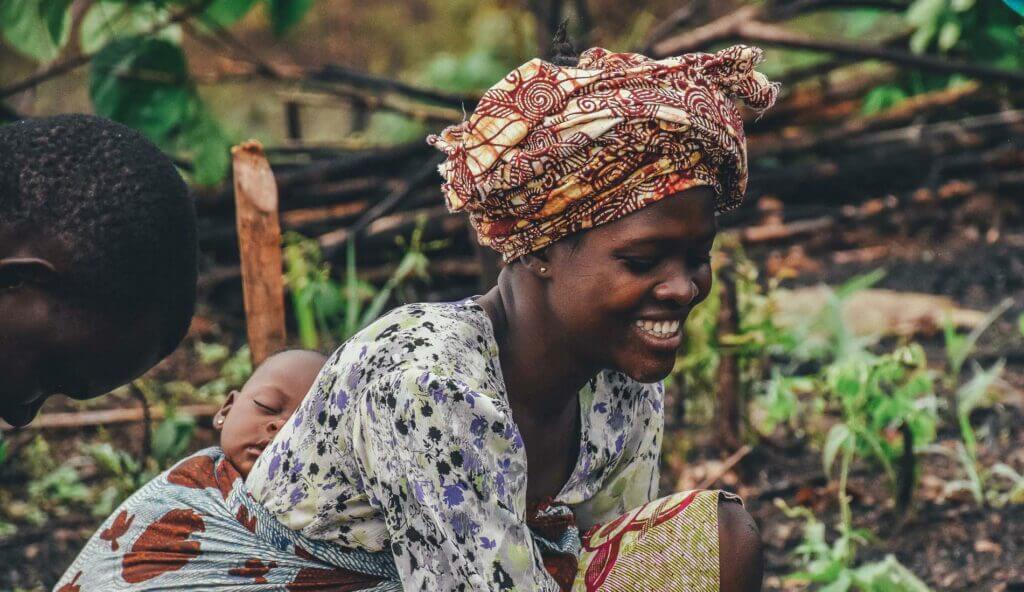
A second step is to escape the post-colonial trap of prioritising extractive industries, assembly-line manufacturing and low-value-added exports through a pan-African industrial policy that develops African resources and human capacities, expands internal markets and economies of scale, and prioritises strategic investments, planning and partnerships that enhance opportunity, generate employment, and secure a greater share of the benefits for Africans.
More resilient agriculture and industrial systems must be powered with energy, and Africa has an unprecedented opportunity to leapfrog the dirty and obsolete energy systems of the past towards more modern, people-centred, decentralised renewable energy systems.
A renewal of Africa’s vision
To break free from these traps, and manage a rapidly changing external context, Africa needs a renaissance of endogenous ideas and leadership.
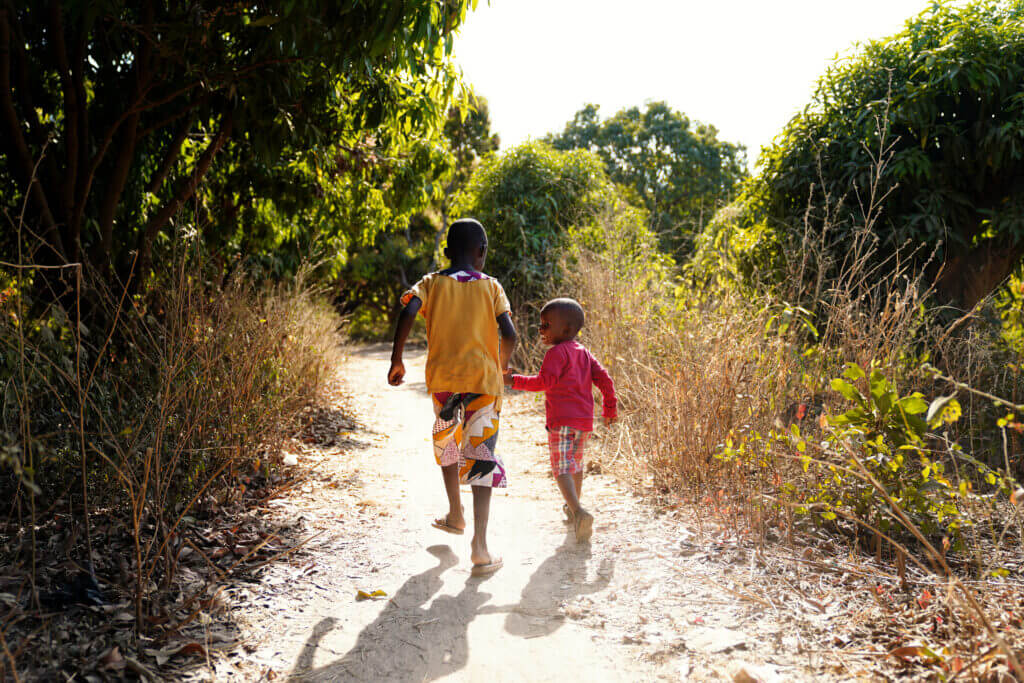
Building on existing plans, such as Agenda 2063, can renew a vision of genuine people-centred development, framed in terms of African values and cultures, focused on meeting the needs of every African, and centred on social justice, feminist values, and meaningful progress.
Africa’s vision for itself can be complemented by a more assertive international role, including South-South collaboration and self-reliance, more robust engagement in geopolitics, and systematic reform of the international architecture to address African and global challenges.
Ensuring a just energy transition
Energy plays a fundamental role across multiple sectors. The choices Africa makes about energy systems will determine many other aspects of development. Fit for purpose, modern and low-carbon, a new model of energy provision must address a number of important factors.
The system must provide accessible, affordable, reliable and sustainable energy to around 600 million Africans that currently lack access to electricity as an overriding priority for development.
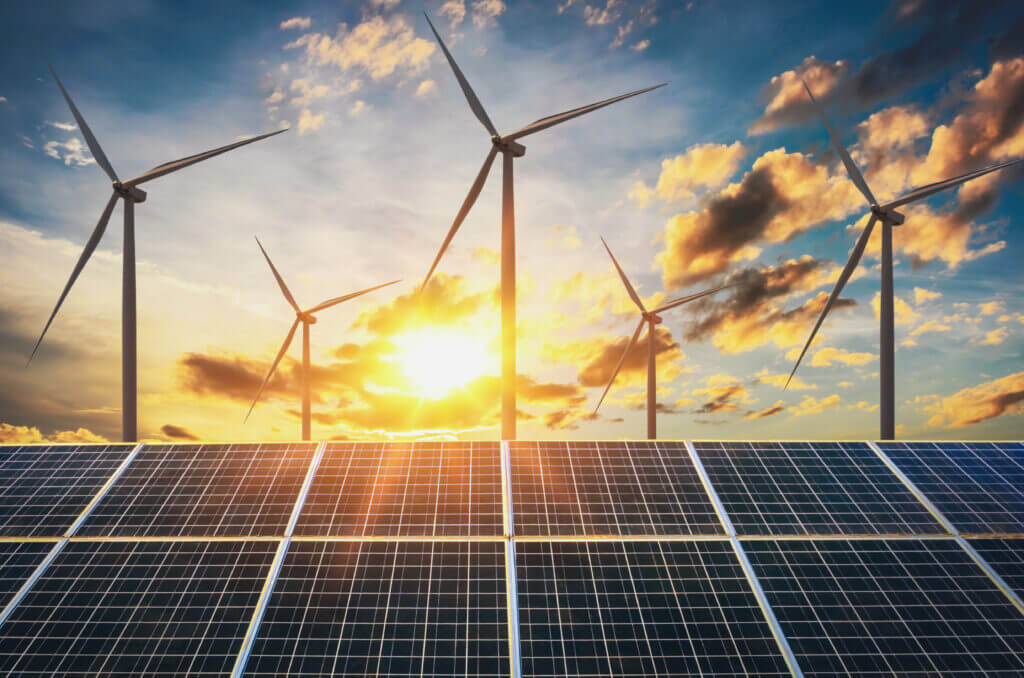
To achieve this goal, Africa will need to move away from outmoded models based on centralised infrastructure, towards more modern, integrated energy solutions that take advantage of Africa’s massive renewable energy potential.
The new energy system will embody a number of key principles and approaches that underpin a new African energy vision, including:
-
- Ensuring African ownership and agency in energy initiatives and plans
- Integrating energy systems design into wider development objectives and planning
- Establishing clear policy priorities, such as support for clean cooking and diversification of energy generation and ownership
- Provide scope for the delivery of energy as a common good and to genuinely foster energy democratisation
- Ensuring stakeholder participation, equity and sufficiency in terms of energy use
Avoiding misguided development policies
Many mainstream “development policies” masquerade as solutions to these problems, but are in fact structural traps that exacerbate the crisis.
Measures to increase low-value-added exports, increase tourism or encourage foreign investment often increase importation of costly food, fuel, intermediate inputs and capital equipment. Outbound immigration to increase remittances worsens the brain-drain. Liberalisation of financial services invites speculation and instability. Privatisation generates revenues for foreign entities that are repatriated abroad.
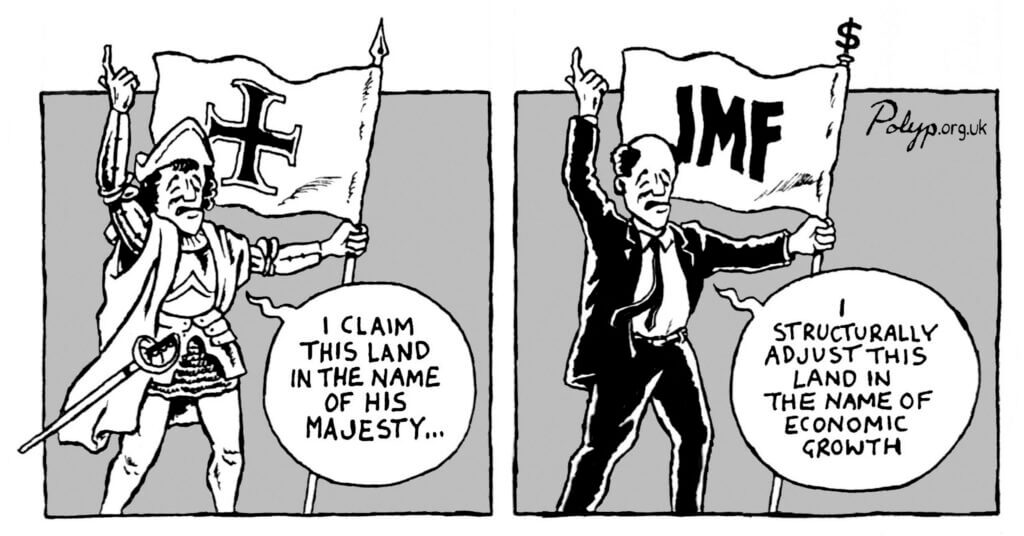
Government subsidies, tax-cuts and weak regulations to attract transnational corporations, in turn, result in a race to the bottom for African and other developing countries. Compounded by tax evasion, the result is a deluge of wealth transfer from Global South to North — upwards of USD two trillion per year.
Added to these development traps are a host of new false solutions framed as responses to the climate and energy crisis — carbon markets, carbon capture and storage, geo-engineering.
Africa can fund the transition through domestic and international sources
The scale of resources required is unprecedented. The dominant narrative is that Africa lacks the resources, and so will need to borrow more to fund the transition.
In fact, as well as addressing the highlighted structural traps, African governments have a range of tools at hand to enhance the generation of domestic resources over time. One is to address the lack productive capacity — such as skilled labour, technical know-how, capital equipment — to begin scaling up domestic production without adding to the need for external inputs and debt.

Complementing this is the creation of more accountable markets and institutions, by addressing market concentration and abusive practices that misallocate resources and corrupt institutions.
While addressing internal factors, African countries can act in concert to address a range of external factors by calling for:
-
- Scaling up of finance through existing mechanisms such as multilateral climate funds
- Initiating new measures such as global programs to support renewable energy deployment
- Deploying innovative financial sources such as financial transaction taxes, redirection of subsidies and special drawing rights (SDRs)
- The systematic cancellation of unfair and odious debts
- Improved regulation of transnational corporations and tax evasion
- Reform of imbalanced and unfair international rules on trade, investment and technology
- Reform of the international financial architecture, drawing on historical processes such as the New International Economic Order, and new ones such as the Bridgetown Initiative
- Reparations for colonial atrocities, biopiracy and the appropriation of cultural heritage
SPOTLIGHT ON ENERGY – A Just ENERGY TRANSITION FOR AFRICA
A genuine energy transition must move rapidly away from fossil fuel dependence
As a new model of energy provision comes into focus, old vested interests are reasserting themselves. The Russian invasion of Ukraine has intensified the “dash for gas” and European governments and industry are redoubling efforts to extract and export fossil fuels from Africa. These plans carry multiple risks and uncertainties, including potential for substantial stranded assets, especially since Europe has speeded up its decarbonisation journey.
Rather than doubling down on fossil fuels, Africa’s right to development would be better served through renewable systems that can achieve universal access, enable food security and regional industrialisation, while advancing African and global climate goals.
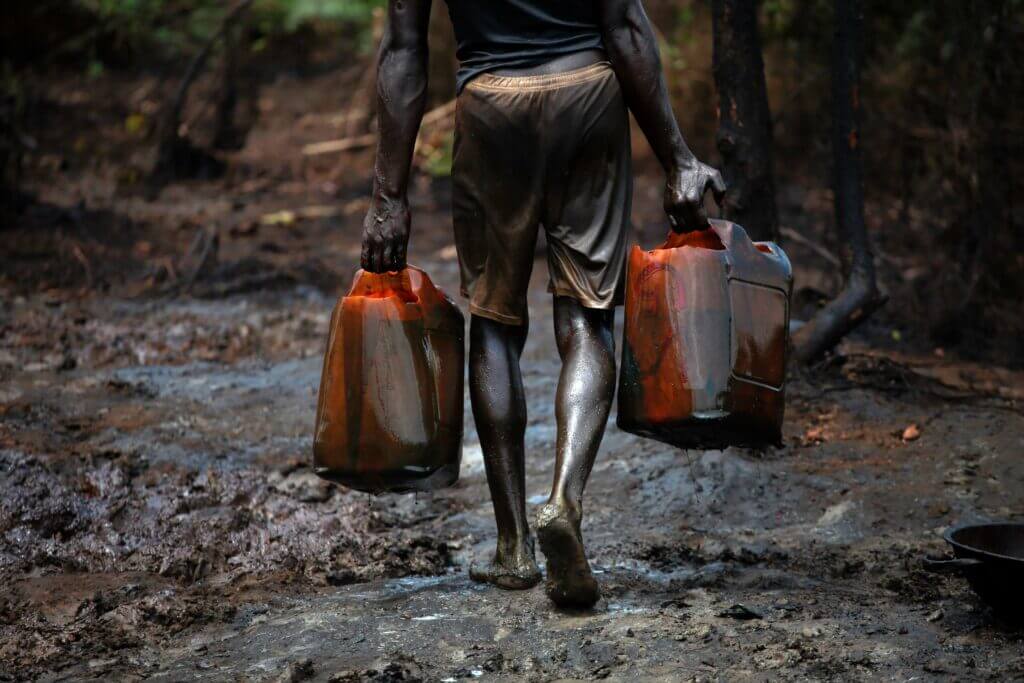
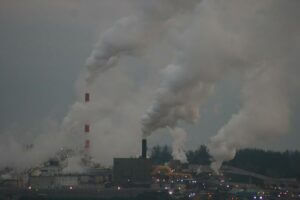
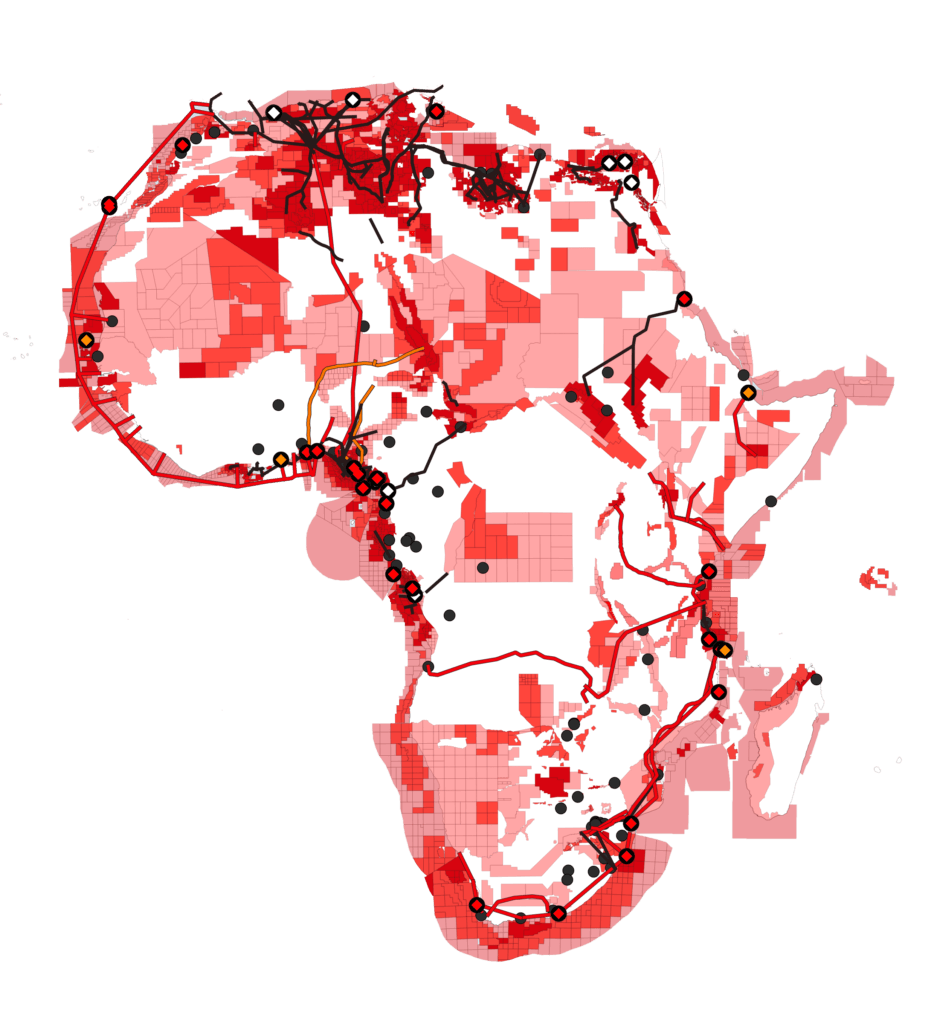
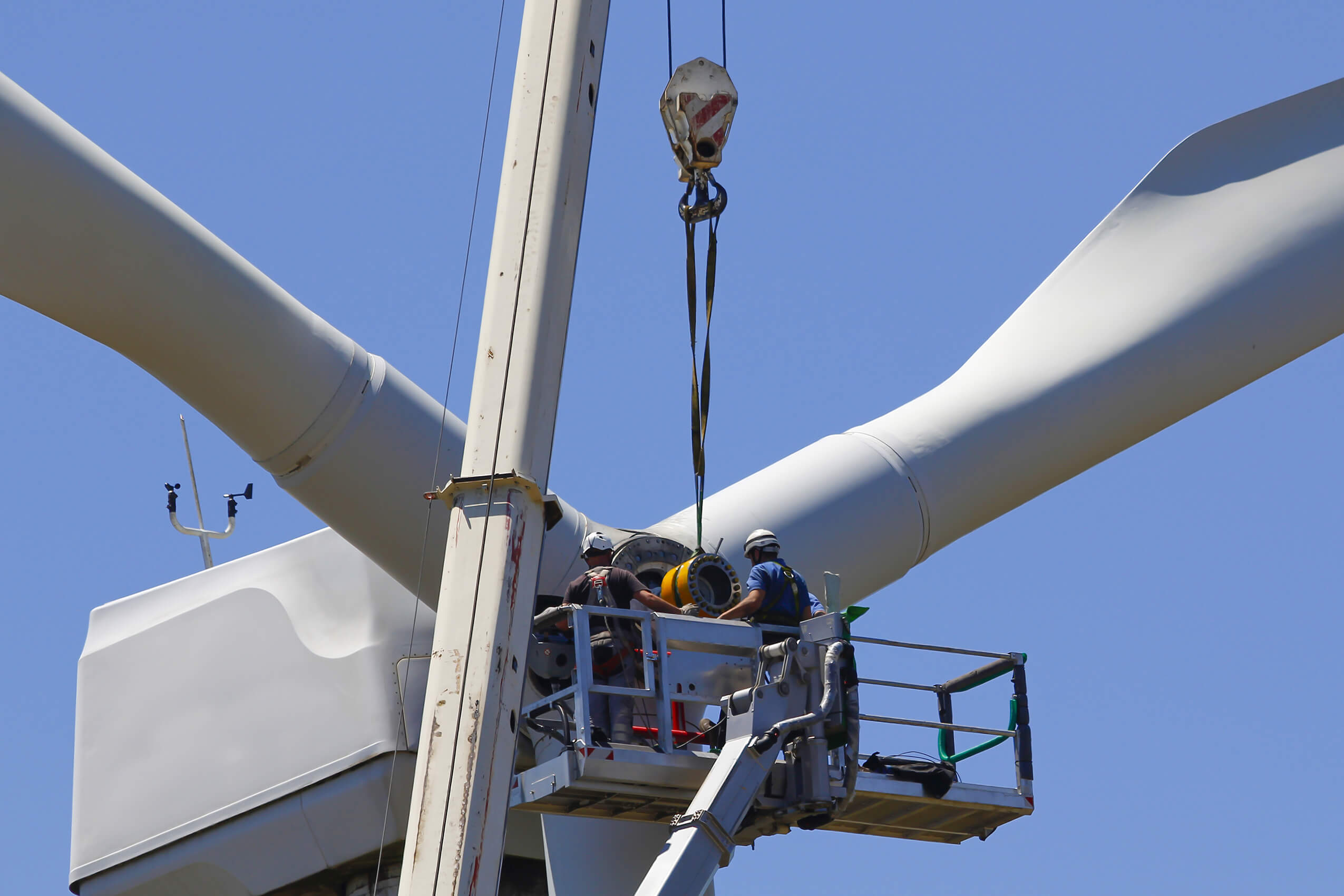

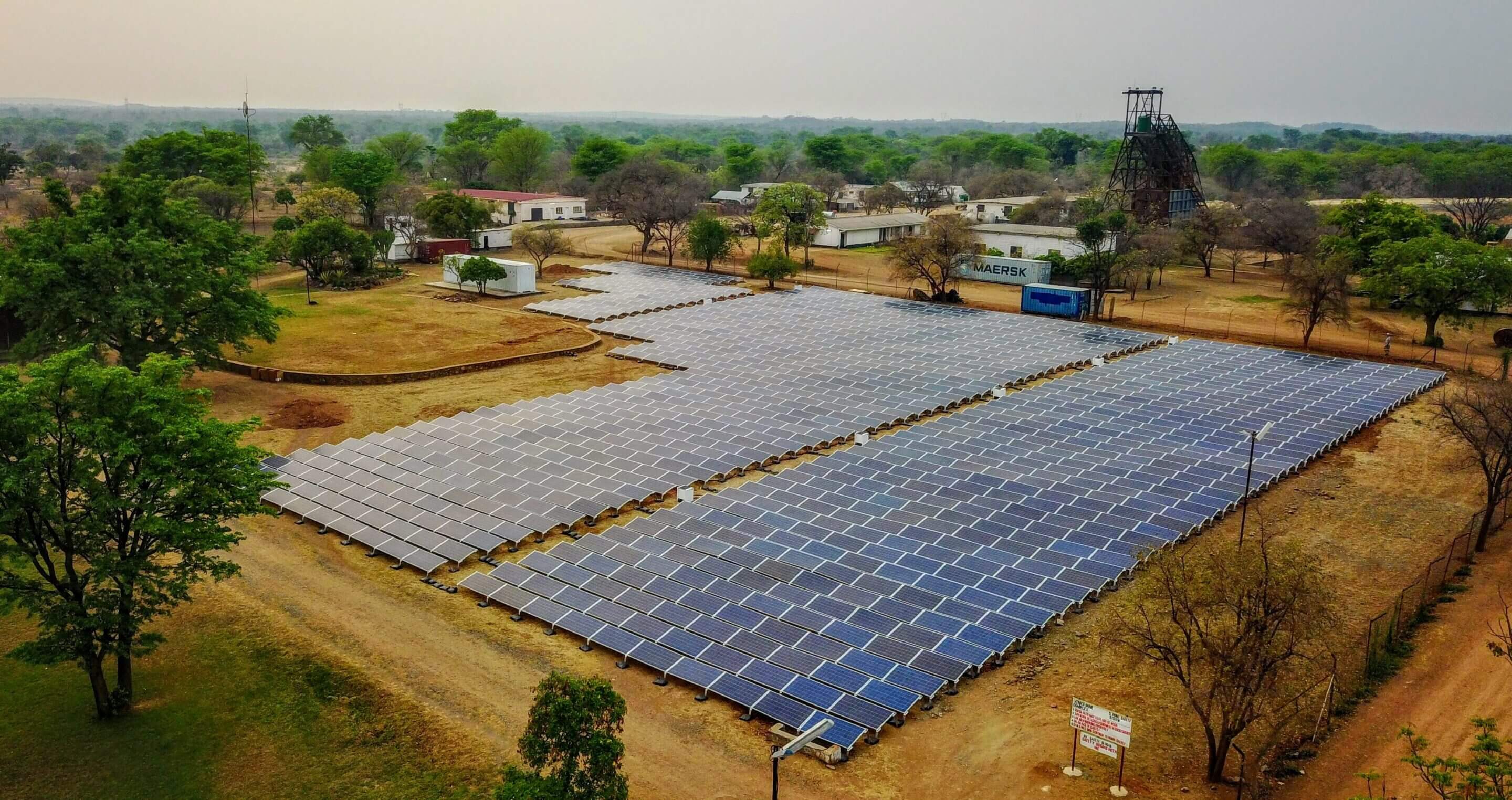
A just energy transition must also ensure the right choices about renewable energy
The transition to a new model of energy provision must also navigate multiple pitfalls.
The mining of mineral inputs, and new energy infrastructure, must meet human rights, social and environmental standards. Scarce material resources must be managed to generate long-term prosperity. Proposed new technologies should be carefully evaluated.
Africans will need to be proactive to ensure the narrative of “just transition” is not appropriated by polluters, and African initiatives are not captured or diverted to meet the interests of donor countries, transnational companies or other foreign interests.
The Spotlight on Energy section of the report includes discussion on these and other topics:
- Ensuring energy access and sufficiency
- Designing appropriate energy systems
- The renewable energy potential
- Key principles and approaches for the energy vision
- Equity, process and stakeholder participation
- Transformative policy approaches
- Electrification of cooking as a top development priority
- Renewables vs fossil fuels
- Good vs bad renewables
- Renewables, human rights and extraction
- Countering appropriation of the 'Just Transition' narrative
- Just transition, labour and a new social contract
- Development, decarbonisation and degrowth
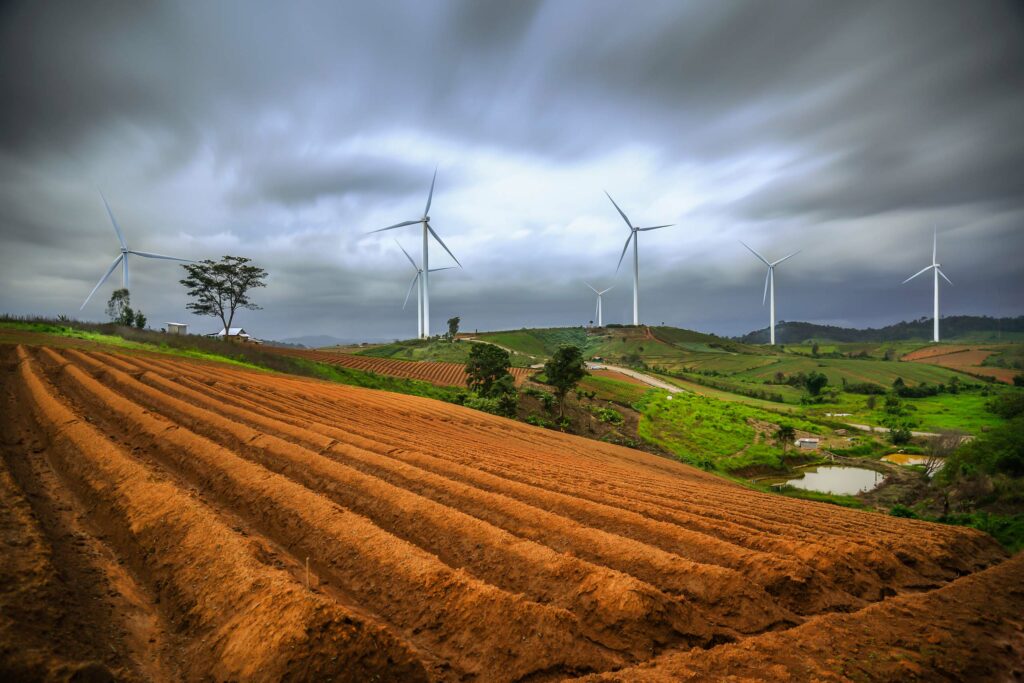
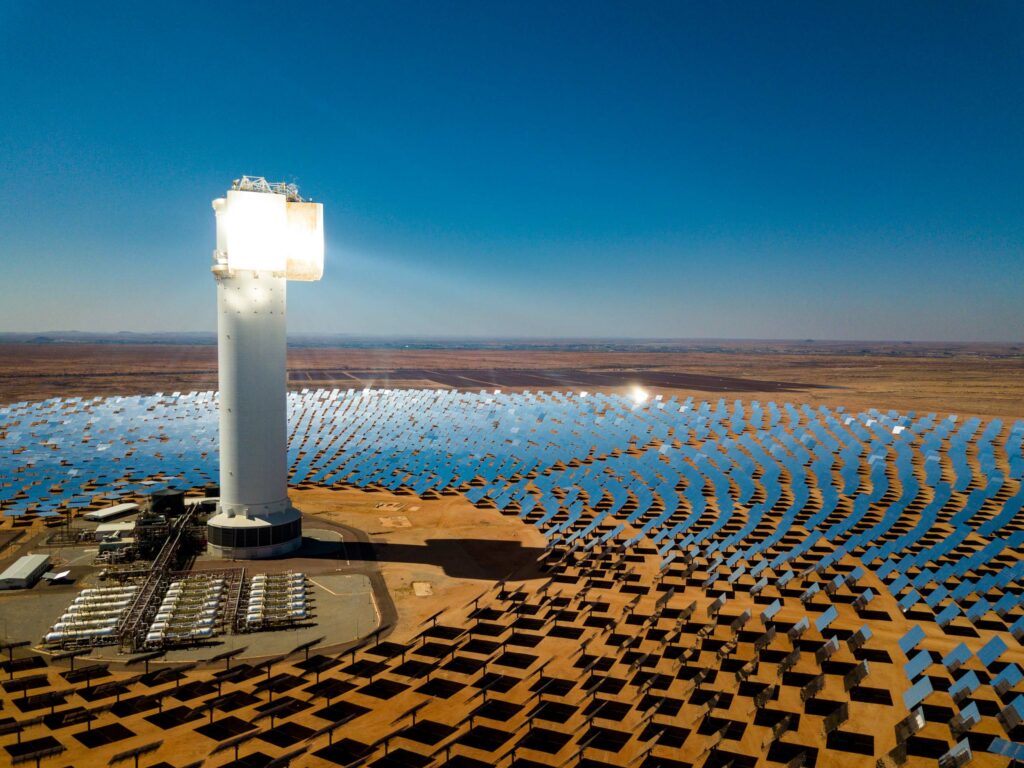
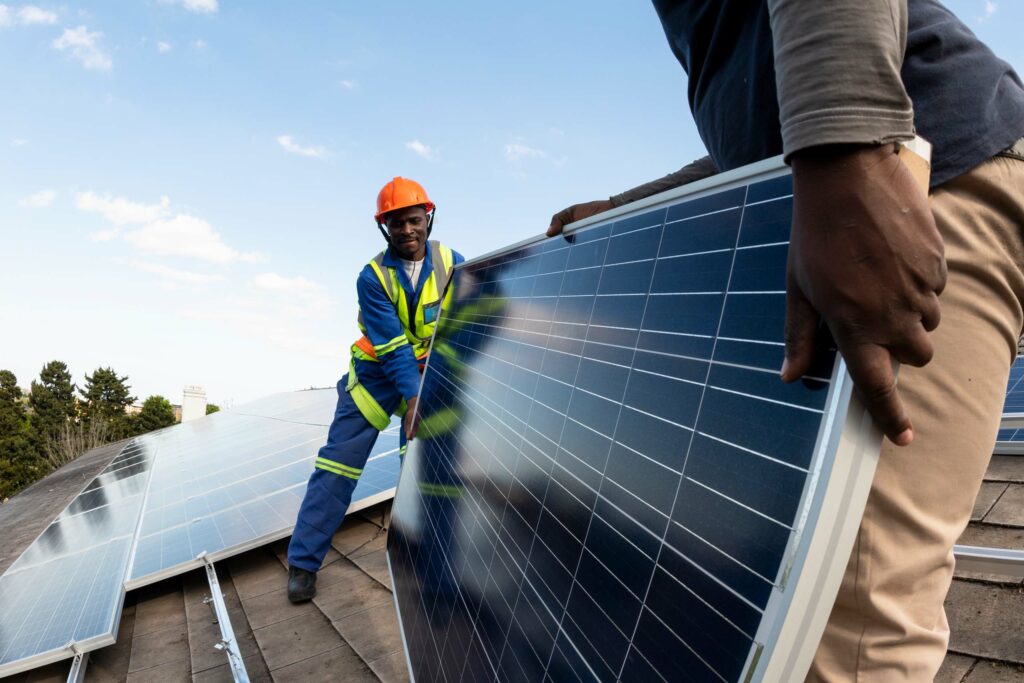
Who's behind this report?
This report was co-authored by a collective of independent experts, under the leadership of Youba Sokona, including Yacob Mulugetta, Meron Tesfamichael, Fadhel Kaboub, Niclas Hällström, Matthew Stilwell, Mohamed Adow, and Colin Besaans. It builds on more than a decade of collaboration and experience that includes building institutions and formulating major regional and continental level initiatives. The report also builds on prior work and support through WhatNext? The authors thank Tetteh Hormeku for his work which provided inspiration to Part I especially.
See more info about the authors on the Auhors page.
Work on this report has been funded by a Climate Breakthrough Award and a Rockefeller Brothers Fund grant in support of the Africa Climate, Energy and Development initiative, hosted by Power Shift Africa.
